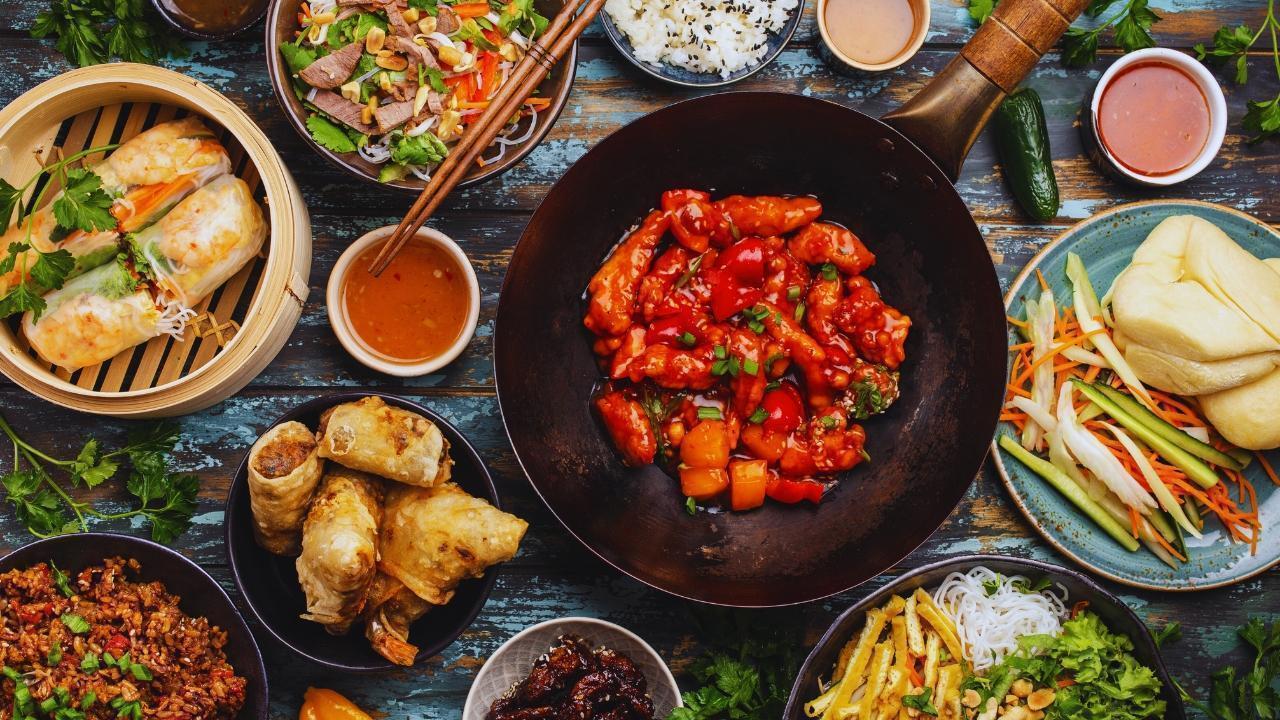You have not yet added any article to your bookmarks!

Join 10k+ people to get notified about new posts, news and tips.
Do not worry we don't spam!

Post by : Anis Farhan
Asian cuisine has long been admired for its diversity, complexity, and cultural depth. Yet in recent years, it has undergone a dramatic transformation from being considered "exotic food" to becoming the centerpiece of global fine dining. With Michelin stars increasingly being awarded to Asian restaurants across continents, the world is recognizing what many in Asia have always known—these flavors are as sophisticated and worthy of prestige as any classic European cuisine.
What makes this shift so powerful is not just the rising number of Asian-inspired fine dining establishments, but the fact that chefs are celebrating authentic traditions rather than diluting them. Street-side hawker flavors of Singapore, family-style Japanese ramen, or fiery Thai curries are no longer confined to casual eateries—they are being reimagined and elevated to star-level recognition while keeping their original soul intact.
The Michelin Guide, once synonymous with French and Italian fine dining, has widened its lens significantly. In cities like Singapore, Bangkok, Hong Kong, and Tokyo, Michelin inspectors have recognized that innovation and authenticity in Asian cuisine rival anything from the Western world. Japan alone boasts some of the highest numbers of Michelin-starred restaurants globally, surpassing even France.
This trend is no longer restricted to Asia. In Europe, North America, and the Middle East, Asian chefs are rewriting the fine dining narrative. Michelin stars have gone to establishments serving intricate Korean temple food, modern Indian fusion, and refined interpretations of Chinese provincial dishes. The guide’s openness signals that the global palate has matured, ready to embrace the complexity and depth of Asian flavors.
One of the most fascinating elements of this culinary revolution is the elevation of street food. In Bangkok, Jay Fai, a humble hawker stall, received a Michelin star for its wok-fried crab omelet. In Singapore, hawker centers have become internationally recognized, with chefs transforming classic dishes like Hainanese chicken rice or laksa into gourmet experiences without losing their roots.
These successes highlight a crucial point: authenticity is the new luxury. Diners are increasingly drawn to meals that carry stories of tradition, culture, and memory, not just technical perfection. Chefs who once might have felt pressure to adapt their dishes to Western tastes now proudly serve unapologetically Asian creations.
While tradition is at the core of this movement, innovation plays an equally vital role. Many chefs experiment with modern cooking techniques, local sourcing, and cross-cultural fusions. For instance, Indian chefs are pairing regional spices with French pastry techniques, while Japanese kaiseki masters incorporate seasonal ingredients from abroad to create entirely new experiences.
This fusion doesn’t dilute the cuisine but rather expands its global appeal. The combination of authenticity and experimentation allows Asian food to stand tall among the world’s most celebrated culinary traditions.
Global diners are more adventurous than ever before. Younger generations, especially millennials and Gen Z, actively seek food experiences that are immersive, authentic, and diverse. Social media has also amplified the appeal of Asian cuisine—dishes like sushi, dim sum, ramen, or Korean barbecue have become cultural phenomena worldwide.
The growing emphasis on wellness and natural ingredients further benefits Asian cuisines, many of which traditionally focus on balance, seasonality, and nutrient-rich combinations. This health-conscious trend has boosted demand for Japanese, Korean, and Vietnamese food in particular, as they align with modern lifestyles.
Cuisine has become a form of cultural diplomacy for Asia. Governments and tourism boards increasingly promote culinary experiences as part of their national identity. Thailand’s global recognition for its cuisine has boosted tourism, while Japan’s Michelin record enhances its reputation for precision and artistry. Similarly, South Korea’s cultural exports, from K-pop to kimchi, highlight how food can anchor a country’s soft power.
This visibility also impacts how Asians perceive their own cuisines. Dishes once dismissed as "ordinary" or "street-level" are now celebrated globally, fueling pride in cultural heritage. The Michelin spotlight has effectively validated Asia’s culinary traditions on the world stage.
As Michelin continues to expand its coverage in Asia and beyond, the recognition of diverse cuisines will only grow stronger. Experts predict that more Michelin stars will be awarded to chefs experimenting with underrepresented Asian cuisines—such as Filipino, Burmese, and Sri Lankan food—which have yet to achieve widespread global recognition.
Moreover, with sustainability and local sourcing becoming central to fine dining, Asia’s deeply rooted farm-to-table traditions will resonate even more with Michelin inspectors. Chefs focusing on indigenous ingredients and ancestral cooking methods may well define the next decade of culinary prestige.
The global dining scene has reached a turning point. No longer is fine dining defined solely by French sauces or Italian pastas. Instead, the fragrant spices of India, the delicate artistry of Japan, the bold flavors of Thailand, and the soulful comfort of Chinese food are setting new benchmarks for excellence.
Asian cuisine has not just entered the Michelin world—it has transformed it. In celebrating authenticity, innovation, and cultural pride, Asian chefs are carving out a future where the diversity of global dining reflects the richness of human traditions. For food lovers everywhere, this means a world of flavors has finally claimed its rightful place at the table of fine dining.
This article is a creative editorial piece intended for informational and cultural exploration. It does not represent the views of Michelin or any official culinary organizations.










Rashmika Mandanna, Vijay Deverakonda Set to Marry on Feb 26
Rashmika Mandanna and Vijay Deverakonda are reportedly set to marry on February 26, 2026, in a priva

FIFA Stands by 2026 World Cup Ticket Prices Despite Fan Criticism
FIFA defends the high ticket prices for the 2026 World Cup, introducing a $60 tier to make matches m

Trump Claims He Ended India-Pakistan War, Faces Strong Denial
Donald Trump says he brokered the ceasefire between India and Pakistan and resolved eight wars, but

Two Telangana Women Die in California Road Accident, Families Seek Help
Two Telangana women pursuing Master's in the US died in a tragic California crash. Families urge gov

Ranveer Singh’s Dhurandhar Roars Past ₹1100 Cr Worldwide
Ranveer Singh’s Dhurandhar stays unstoppable in week four, crossing ₹1100 crore globally and overtak

Asian Stocks Surge as Dollar Dips, Silver Hits $80 Amid Rate Cut Hopes
Asian markets rally to six-week highs while silver breaks $80, driven by Federal Reserve rate cut ex